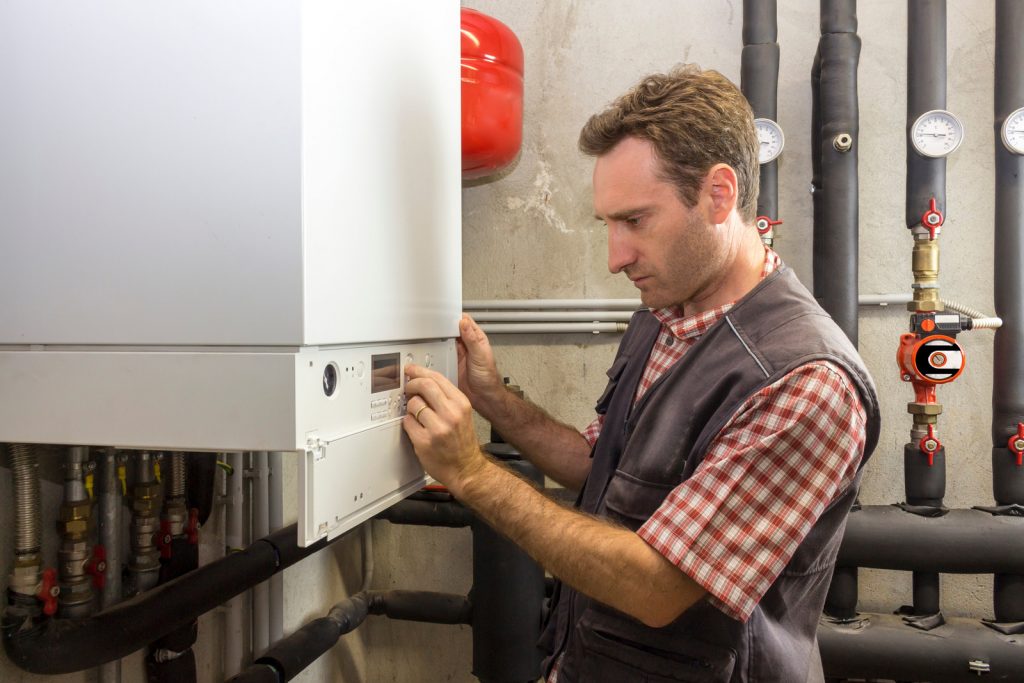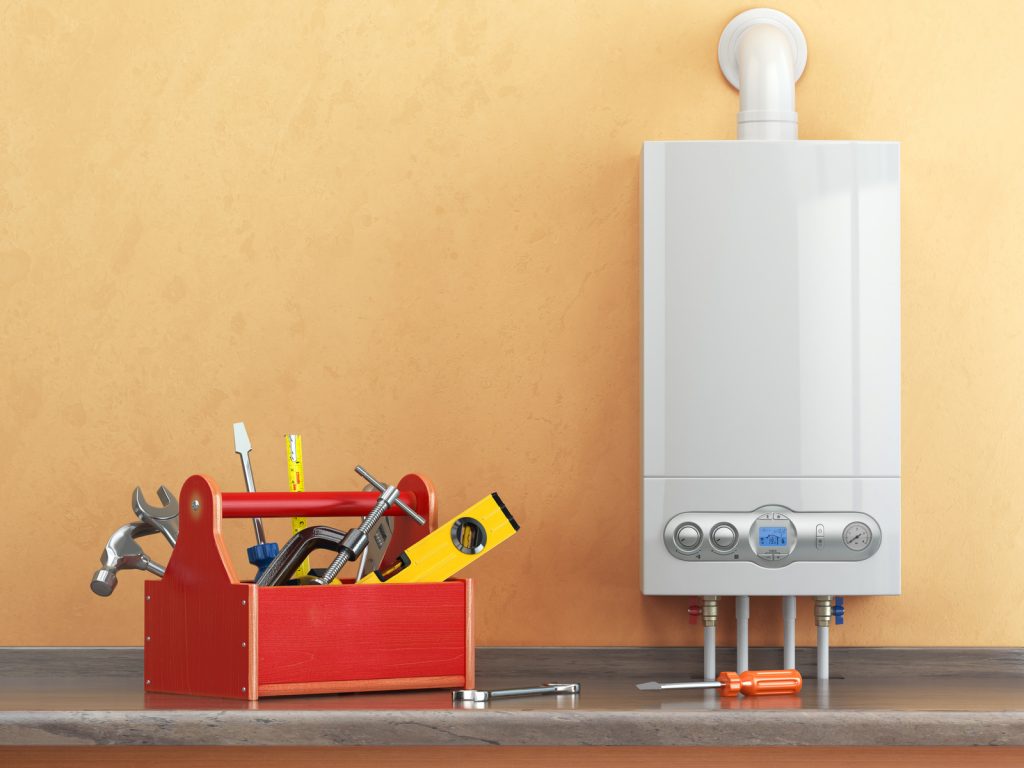You can put a boiler in almost any room and most people like to have them installed in kitchens and utility rooms. It is easiest to install a replacement boiler where the old one was so there isn’t much disruption to existing pipework. A boiler can go on any internal or external wall that’s strong enough to hold its weight.

Can you put a boiler outside?
There are very few gas boilers that can be installed outside and you should ask your installer to check details for you. They are put in a container to protect them from the elements. Worcester’s Greenstar Heatslave is an example of this.
Warmzilla have a range of Worcester boilers you can choose from. Click on the banner below to choose your ideal boiler.
Can boilers be in the bedroom?
A gas boiler installed in a bedroom needs to be room sealed which is the safest option in a room where people sleep. Open flued gas boilers – those that take air for combustion from the room they are in, cannot be installed in sleeping accommodation.
Gas appliances like gas fires and space heaters over 14kw must be room sealed.
How much does it cost to move a boiler?
Moving a boiler could cost up to £500 or more depending on how far you want to move it from its current location. On average, the extra costs can include more drilling, a longer flue pipe, more pipework and fittings.
You will also need to think about the aesthetics of the room where the boiler has been relocated. You can get quotes from local installers on the link below from Boiler Guide.
Where is the best place to put a combi boiler?
Boilers, for practical reasons, are usually located near to where the demand for hot water is greatest and like kitchens and bathrooms. Because they haven’t always been quiet in operation, bedrooms have not been the top location unless there is no other choice.
But as boilers get smaller, quieter and more stylish, you may not want to hide them. The popular locations currently are:
- Kitchen
- Spare room
- Loft
- Bathroom
- Utility room
Can I hide my boiler in the kitchen?
Many people prefer to conceal their boiler and this is easily done in the kitchen because you can often find a cabinet size and colour to hide it away.
It’s important you follow all the requirements stated in the manufacturer’s instructions and leave enough space around the appliance so it can be easily serviced or repaired when needed
You may also want to hide the flue pipe coming out of the boiler and there are standards regarding this too where the full length of the flue should be able to be inspected and so hatches will need to be fitted.

Can a boiler be fitted under the stairs?
Installing a boiler in an understairs cupboard can be done if there is no alternative suitable location and wherever possible the boiler should be a room sealed type.
If the building is more than two storeys, the standards state internal surfaces of the cupboard should be made of non-combustible material and all air vents should be direct from outside air.

Gas boiler location regulations
The Gas Safe registered engineer that installs your boiler will be aware of the building regulations for positioning and will tell you if your ideal place is suitable.
The most versatile and safest option is the room sealed combi boiler that can be located in bathrooms, cloakrooms, garages and bedrooms.
Room sealed means no air is taken from or put into the room where the boiler is located. Air needed for combustion and also for the removal of exhaust gases is done from outside the property.
Regulations on boiler location take into account the size in kilowatt heat output of the boiler as well as how the flue will exit the property to remove waste gases.
There are regulations on leaving adequate space around the boiler as well as having easy access so it can be repaired and serviced.
*The information in this article should be used for general guidance only and not as financial or health advice. Full details are on the link in the footer to our disclaimer page. Always discuss your requirements with a competent and suitably qualified professional before undertaking any work.
Affiliate disclosure
Heatology.co are participants in a variety of affiliate schemes which help fund and run this website, visitors who follow our links and purchase a product may earn Heatology.co a commission. The money we make from affiliate marketing costs you nothing but keeps us online, so thank you for your continued support!
